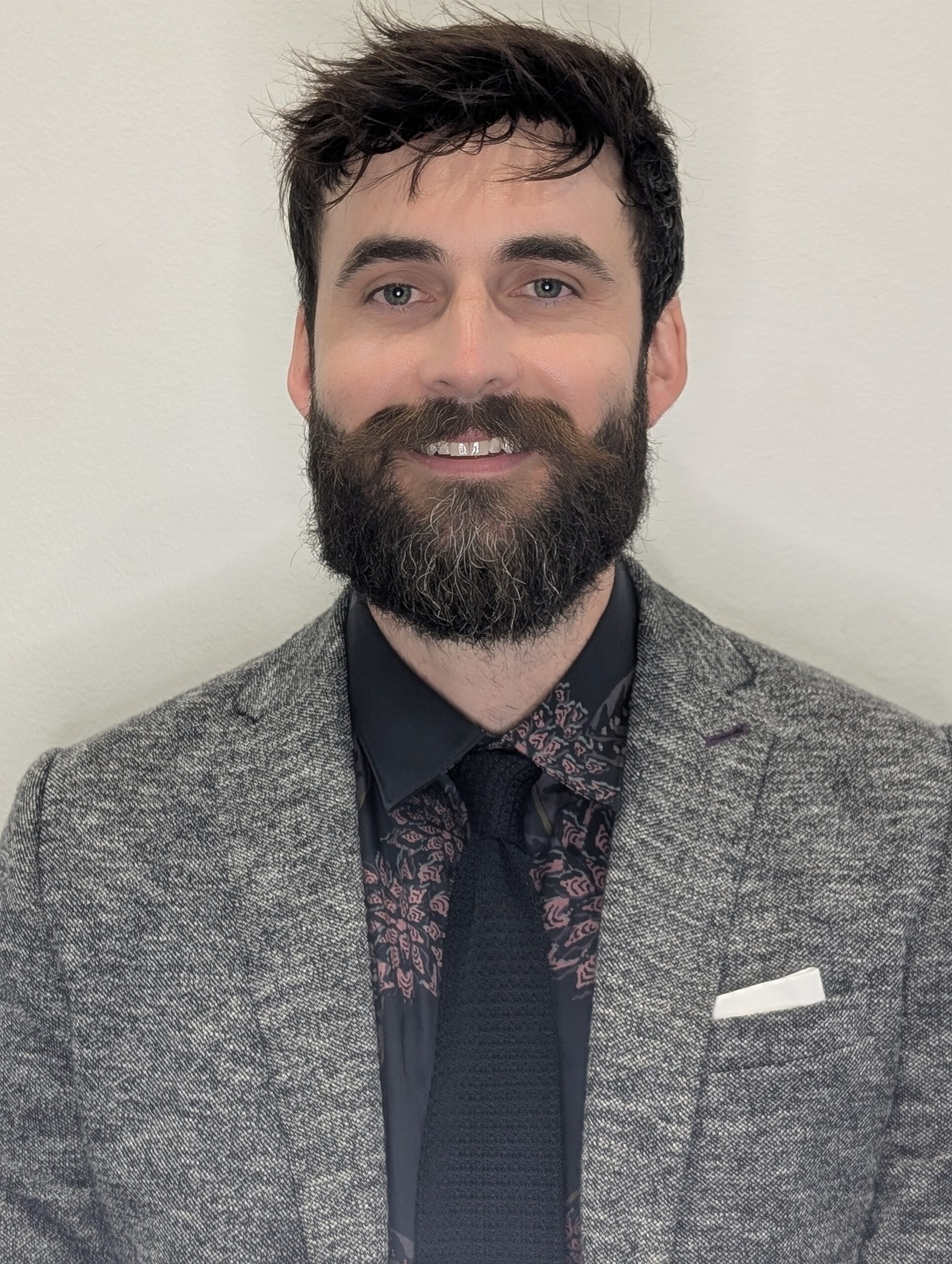“Yesterday is gone, Tomorrow has not yet come. We have only today. Let us begin.”
This is the mantra that keeps Zach Riser grounded in his work as Day Treatment Program Manager at Alexander Youth Network. Since October 2020, Zach has brought energy, patience, and creativity to the children he serves, blending his love for sports and music into the daily rhythm of the program. Zach shared that it was the Neurosequential Model of Therapeutics (NMT) that inspired him to join the Day Treatment team. “The NMT model drove me in the direction of Day Treatment with the focus on movement and music. I enjoy implementing my sports and music background into programming.”
When asked what a typical day looks like in his role, Zach described it in a few simple words: “Outside of many logistical components, I provide coaching, positive encouragement, exhibit a high level of patience, and consistently model positive behavior.”
He explained that his team is unique because they keep ideas flowing and communication open. “We keep a fresh flow of new ideas and open communication to help consistently engage the kids. We greet the kids with a smile and positive energy to start the day. This energy continues throughout the day.”
One of the most meaningful moments of his career came when he watched a child transform right before his eyes. “To see an individual who had previously no belief and low self-esteem to reach a point of using skills consistently with a high level of confidence.”
If you followed Zach around for a week, he believes you would be surprised by just how much coaching is involved. “This is a vital piece, whether it’s directly with staff or clients. The days are filled with encouragement, teaching, practicing, and learning.”
About the Day Treatment Program
For those unfamiliar, Zach describes Day Treatment as an important step in a young person’s mental health journey. “Day Treatment can be an important part of a mental health journey. An individual will get out what they put in. The small setting is a great way to learn and hone personal and social skills. Helps to boost confidence and build a coping skills tool kit.”
“Kids starting the program often do not have an understanding of how to express their thoughts and feelings in a safe and appropriate manner. These behaviors can look like refusals of engagement, various levels of impulsive behavior, and aggression. It’s our job to help the kids understand and work through their emotions, identify triggers, and support them in working toward their individual goals. The team responds with a calm and patient approach, as we know each child may need a different level of intervention.”
Balancing academics, therapy, and emotional support is not easy, but Zach credits patience and mindfulness as essential tools. “Practicing mindfulness and focusing on the present is essential. Being aware of the surroundings and anticipating what may happen can help in the support of everyone involved in programming.”
He believes success depends on strong partnerships between various entities. “Each individual is important to programming. From Day Treatment staff, to teachers, school administrators, treatment team members, and the family. Consistency is key.”
And when a child completes Day Treatment, Zach says success looks like “using learned skills on a frequent basis and increased confidence with ongoing support of family and a detailed aftercare plan.”
Zach’s Insights and Perspective
Working closely with children, Zach has seen firsthand how resilient they can be. “Kids can often go from an aggressive moment to regulated and practicing skills with the right support. Kids have the ability to overcome and work through immense hardships.”
To keep his staff motivated during difficult weeks, Zach checks in often and relies on open communication. “Clear communication and trust are two important parts of a strong team.”
He also has an important message for parents and teachers. “The behavior you model will largely pass to them. They feed off your energy. You will get the best out of them with kindness, patience, and clear and direct communication.”
And if he could bust one myth about Day Treatment, it would be the misconception that kids in the program are “bad.” As Zach puts it, “Kids in Day Treatment are often labeled as ‘bad.’ This is just another stop in their life and mental health journey. These are kids who have come from various upbringings and traumas. They are in need of guidance, consistent support, and understanding.”
Zach’s Words to Live By
Zach describes the Day Treatment program in three words: “Structured, engaging, life-changing.”
His favorite quote is one that keeps him focused every day: “Success is not final. Failure is not fatal: it is the courage to continue that counts.”
And if he could share one piece of advice with his younger self, it would be simple yet powerful: “Enjoy all the little moments.”
Zach Riser is a leader whose consistency, compassion, and creativity bring light into the lives of the children he serves. Through his guidance, the Day Treatment Program continues to be a place where kids can discover resilience, learn new skills, and grow with confidence.
Written by Shay Woodard




